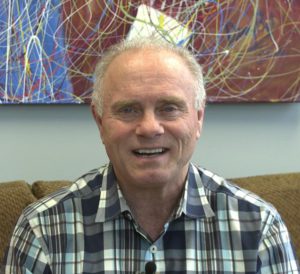
By Bill Harris, late founder of Centerpointe Research Institute
Do you find yourself (sometimes or often) at the mercy of anger, resentment, stress or jealousy? Let’s be honest with ourselves and each other.
Of course you do! Nearly everybody on earth has these feelings from time to time.
But I’m here to tell you that you do NOT have to live at the mercy of your emotions.
With enough awareness, you can CHOOSE to filter your experiences through any emotion –– including joy, acceptance and/or gratitude.
Does that sound impossible? Unlikely at best?
It doesn’t happen overnight, but it does happen, with enough practice, stillness of mind and awareness.
This notion of “letting whatever happens be okay” is the first of my 9 Principles for Conscious Living.
It sets the foundation for living a life that is more enriched, happy and fulfilling than you might possibly imagine.
So, let’s dive. And stay to the end, because you’ll find a powerful Self Discovery exercise that will help you change the way you see your life and react to outside circumstances.

OK!
Life Principle #1: Let Whatever Happens Be Okay
Three rules that govern the world created by the mind.
Rule #1: Everything changes and eventually passes away.
Rule #2: Sometimes you don’t get what you want.
Rule #3: Sometimes you get what you don’t want.
You can approach these rules in one of two ways.
The first way is to resist them, fight against them.
When you resist change, you can experience unpleasant emotions and physical symptoms.
You get angry, become stressed, anxious and fearful. You might even behave in ways that have unpleasant consequences.
Wanting things to be different from what they really are is like beating your head against a wall.
Stop fuming, fussing and suffering. It is what it is.
The second way to approach the three rules is to let whatever happens be okay. You can accept what is.

You may prefer that things not change and pass away, you may wish that you would get what you want or not get what you don’t want.
You might take action to change things or to keep them the same, but if you don’t succeed - you can accept what is.
In the first method, your disposition, happiness, and inner peace are dependent on the outcome being a certain way.
When you let whatever happens be okay you are independent of the outcome and can experience happiness and inner peace, regardless.
You remain solidly peaceful and happy whether you try to change things or not, allow yourself to accept, "Whatever happens, it’s okay, I will remain happy and peaceful."
The amount a person suffers in their life is directly related to how much they are resisting the fact that “things are the way they are.”
This has got to be one of the KEY pieces of human wisdom. If there is suffering or discomfort there is resistance to the way things are. Period.

To master this principle, addictions or attachments to things being other than they are must be upgraded to preferences.
This means that when “what is” is not what you want, you do not suffer over it (get angry, sad, fearful, anxious, and so on) and your happiness and inner peace are therefore not controlled by forces outside of you.
You prefer things to be such and so, but you’re not attached to them being that way.
To the degree a person is willing and able to let whatever happens be okay, they do not suffer. It’s as simple as that.
People with many rules about how things are “supposed to be” suffer more because no matter how much care they take to protect their rules, and see that they are followed, both by themselves and by others, these rules are often violated.
This doesn’t mean a person can’t be goal oriented and work toward making things the way they want them to be.
But the emotionally healthy person prefers the outcome they seek rather than being emotionally attached to it.
That means they work toward what they want but, whatever the outcome, they maintain their equanimity and inner peace.
This approach, then, is not fatalism, or disinterest in the outcome but rather a decision not to let the outcome throw you off-centre.
This is the meaning of upgrading your attachments to preferences, and the meaning of the non-attachment spoken of in Eastern philosophy (and spoken of in Christianity and other religions in other ways).
The key to handling challenging thoughts, situations, and feelings is therefore not in resisting them, but rather in becoming as fully accepting of them as possible.

Accept what you think and feel, and what happens around you, even if what you think and feel is uncomfortable what is happening is not as you would have preferred.
Here, then, is a key point. Though it looks as if our discomfort is created by the thing we don’t like, or are otherwise resisting.
In actual fact the discomfort we feel is actually caused by our resistance to it.
When we stop resisting, the discomfort stops also.
It may look as if the person, thing, event or whatever, is creating our discomfort, but it is really our reaction to it, our unwillingness to accept it, that creates the discomfort.
Everyone has had something happen in their life that they strongly resisted, but ultimately came to terms with: a relationship that ended, for instance.
At first, you go through all kinds of suffering but at a certain point you move on and accept what has happened.

At that exact moment, the suffering stops.
Similarly, we’ve all heard of people who find out they're dying from a fatal illness, and who become totally peaceful about it once they accept the fact that it is happening.
It’s not what happens that creates our suffering, it’s our reaction to it!
Through acceptance, you empower yourself to heal, transform, or release any unresolved mental or emotional material.
Unless and until you can accept what you think and feel as a perfect manifestation of reality, you will remain attached to toxic attitudes and beliefs.
But by being fully present to, and accepting of, your thoughts and feelings, you open the pathway for the unconscious to reorganise itself to progressively higher levels of functioning.
When you sense discomfort you are sensing resistance. When you sense resistance, meet it with acceptance.
Ironically, once you stop resisting, you are much more effective in creating any external change you may have a preference for (not an attachment to).
This all ends up being nothing but platitudes if you don’t take some kind of definite step to put it into practice.

One thing that helps, of course, is daily meditation, especially with the Holosync® audio technology we use at Centerpointe Research Institute, which dramatically accelerates the meditation process.
Stimulating the brain with Holosync creates the kind of expanded awareness that makes it progressively easier to let whatever happens be okay.
The second thing you can do is to watch yourself, with great curiosity, as you resist - in other words, become more aware of the Let Whatever Happens Be Okay principle and practice being more aware of how and when you resist.
Ironically, when you let whatever happens be okay, it’s much more likely that you’ll get what you want. This is one of the real ironies of personal and spiritual growth:
The less attached you are, the more likely you are to get what you want.
The more you let what happens be okay, the more the universe lines up behind you to help you create whatever it is you’re focused on creating.

Self Discovery Exercise
The best way to begin letting whatever happens be okay is to be aware of when things are not okay.
Part One: Revision
For the Next Few Days, Consciously Revise How You See the World
Notice when you find yourself complaining (either mentally or out loud).
Revise your thoughts by looking for what is positive about the object of your complaint. Ask yourself, What is okay about this situation? How could I make this situation okay?
Part Two: Resistance
Once a Day, Reflect on How You Have Resisted
Review the past 24 hours and note the occasions you resisted. What did you not accept as okay?
Note the consequences that result from your resistance. How did your body feel? What thoughts were you thinking? What pictures were you making inside?
If you were able to let it be okay, what happened?
Remember that you’re free to take whatever action seems appropriate to create what you want, but the outcome is just a preference.

About Centerpointe Research Institute
Founded by the late Bill Harris in 1989, the Institute produces as its flagship a product called ‘Holosync®.’
This is an audio program formulated to recreate the brain wave patterns of experienced meditators.
If you use this program daily, you can achieve the same results 8 times faster than it takes with traditional meditation.
If you would like to get a free e-book called ‘The New Science Of Super Awareness’ by Bill Harris, please visit this web site.
When you sign up, you will also be able to get the audiobook version for free, as well as a free demo of Holosync®.
